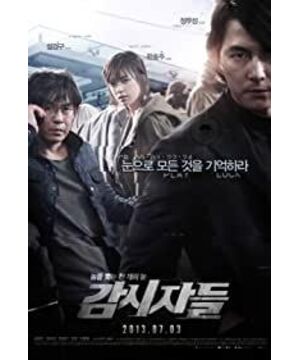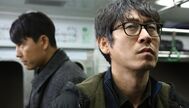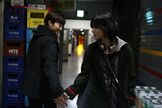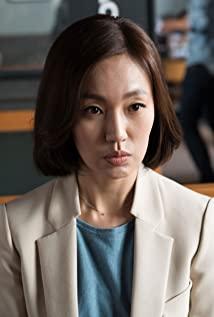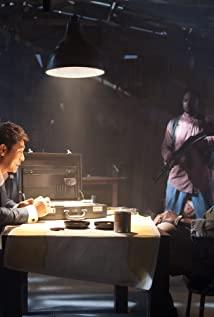The first difference is that this film is much taller, and the scale of money burn is different, including equipment, crashes, and special effects. The second is a little bit handsome (it feels exaggerated), the actors' makeup, costumes, and faces are very clean. The first is, of course, the scale of investment, and the second is the urban pattern and characteristics. Of course, the cities in South Korea are much larger, and secondly, Hong Kong has many small people, unlike South Korea, which has wide driving roads everywhere, but there are few cities in the world with such unique characteristics as Hong Kong. Therefore, the taste of many Hong Kong films is inseparable from the carrier of this unique city. The third one is "God". Of course, one of the charms of the movie lies in its "god", but if there is more, it will not be true. This kind of unreality has three places in this film, because it wants to be handsome, but the Hong Kong film handles it very well. The first is that she was already in the blind spot of vision or did not pay attention, but the heroine could scan the residence of the enemy she had never met like a machine, which is "god", not real. The Hong Kong film is an enemy that the heroine meets again by chance. In fact, it is also related to the nuclear "heaven is watching", which will be discussed below. The enemy had already left, but was bumped into by the heroine in order to see the master, as if destined. The second is that the squad leader determines the enemy. The squad leader of the Korean film first noticed a person in black clothes among a group of people when he was deploying, and then he identified the enemy in the follow-up. This is too "god", so many people , Is it a crime to wear black clothes? In Hong Kong, the dog head was watching the enemy by a person passing by a jewelry store. Note that it was a person. He happened to be this person when he followed him. Of course, he had reasonable reasons to suspect him. The third is the enemy interrogating the heroine in the restaurant, which is a bit magical. The original Hong Kong film shows that the enemy is an extremely cautious person. By giving a scene, that is, when he is in the car, he feels that the policeman is drinking milk tea on the opposite side, and he hurries. He got out of the car and came to show it. Before he questioned the heroine, the former Hong Kong film gave him a memory. He had seen the heroine before (the Korean film did not), and now he sees it again. The evidence also reasonably explains why he would easily let go of the heroine later. But the enemy of the Korean film directly interrogates the heroine, which is a bit magical. Well, even if he is sure, he directly questioned the heroine, but it makes no sense to let her go directly. The fourth lacks the core of Hong Kong films. Surveillance, another meaning is that the sky is watching, here the Hong Kong film gave him a moral view (the enemy told his master that the Bodhisattva would not bless people like him), so that it was reflected in reality. The first is the exposure of the whereabouts mentioned above, the second is that the rain suddenly stopped (there are also Korean films here, but they are just showing, not expressing the concept of nuclear fate), and finally, the irony is that the enemy's escape is an accidental death, a good man Not dead, it is the embodiment of the nuclear "heaven is watching" in Hong Kong films, if you don't understand it, you will It's not right to be dismissed as superficial drama. In contrast, I still like Hong Kong movies. Korean films are just cool commercial films.
View more about Cold Eyes reviews


